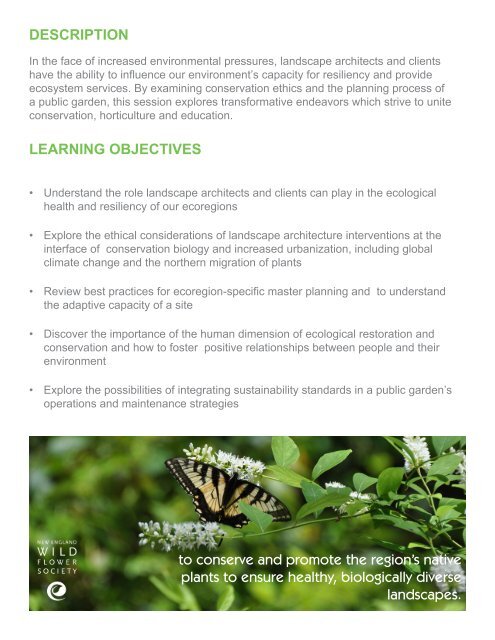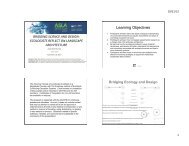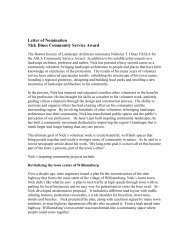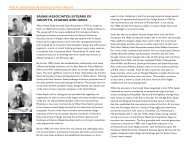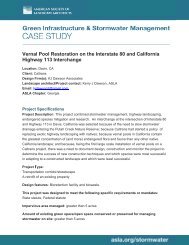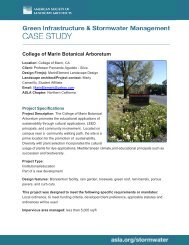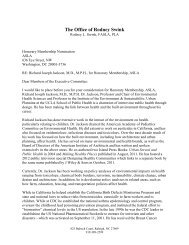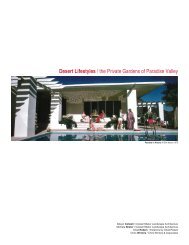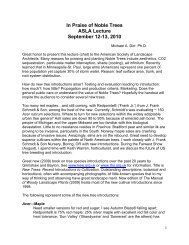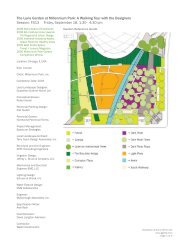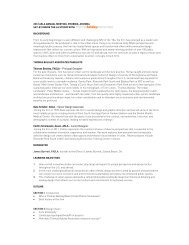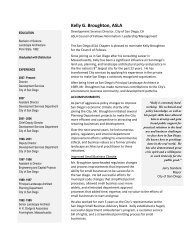(R)evolution: - American Society of Landscape Architects
(R)evolution: - American Society of Landscape Architects
(R)evolution: - American Society of Landscape Architects
Create successful ePaper yourself
Turn your PDF publications into a flip-book with our unique Google optimized e-Paper software.
DESCRIPTION<br />
In the face <strong>of</strong> increased environmental pressures, landscape architects and clients<br />
have the ability to influence our environment’s capacity for resiliency and provide<br />
ecosystem services. By examining conservation ethics and the planning process <strong>of</strong><br />
a public garden, this session explores transformative endeavors which strive to unite<br />
conservation, horticulture and education.<br />
LEARNING OBJECTIVES<br />
• Understand the role landscape architects and clients can play in the ecological<br />
health and resiliency <strong>of</strong> our ecoregions<br />
• Explore the ethical considerations <strong>of</strong> landscape architecture interventions at the<br />
interface <strong>of</strong> conservation biology and increased urbanization, including global<br />
climate change and the northern migration <strong>of</strong> plants<br />
• Review best practices for ecoregion-specific master planning and to understand<br />
the adaptive capacity <strong>of</strong> a site<br />
• Discover the importance <strong>of</strong> the human dimension <strong>of</strong> ecological restoration and<br />
conservation and how to foster positive relationships between people and their<br />
environment<br />
• Explore the possibilities <strong>of</strong> integrating sustainability standards in a public garden’s<br />
operations and maintenance strategies<br />
to conserve and promote the region’s native<br />
plants to ensure healthy, biologically diverse<br />
landscapes.


